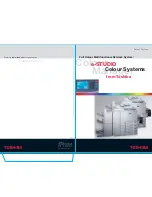
9A-30
A-63054 February 2004
Image Processing
—select from the following options:
Adaptive thresholding
—also known as ATP. The Adaptive Threshold
Processor separates the foreground information in an image (i.e., text,
graphics, lines, etc.) from the background information (i.e., white or non-
white paper background).
Adaptive Thresholding works on grayscale scanned images and outputs a
bitonal electronic image. Its strength lies in its ability to separate the
foreground information from the background information even when the
background color or shading varies and the foreground information varies
in color quality and darkness. Different types of documents may be
scanned using the same image processing parameters and results in
excellent scanned images. If mixing documents of different colors, paper
qualities and textures, and print quality, the Adaptive Thresholding features
optimize each image automatically.
When Adaptive Thresholding is selected, all of the other settings in the
Filters tab are available for selection. A Contrast value of 100 is considered
fully adaptive thresholding.
Fixed Processing
—used for black-and-white and other high-contrast
documents. A single level is set to determine the black-and-white
transition. The threshold is programmable over the entire density range.
Fixed thresholding sets contrast to 0 when scanning is initiated. If Fixed
Processing is selected, Contrast is not available.
Error Diffusion
—screens photographic areas of a document to simulate
gray levels yet sharpens the edges of text. It is recommend that error
diffusion is used when a mix of text, graphs, pictures, and colors in the
documents are being scanned.
Dithering
—dithering is a way to simulate gray shades and should be used
for scanning photos. It is not recommended for text-only images. Three
options are available:
• 64-Level Bayer Dither
• 64-Level 45 Degree Clustered Dot Screen
• 64-Level Dispersed Dot Screen
NOTES: When Error Diffusion or Dithering is selected, all of the other settings
in the Filters tab are not available, as they are not applicable to error
diffused or dithered images.
In Capture Software, because bitonal images are always scanned
with Group 4 compression, Error Diffusion and Dithering will likely
cause negative image compression (less than one-to-one). This will
result in very large image sizes for bitonal images.
If Error Diffusion or Dithering is only set on one side (Front or Rear)
and is combined with a different setting for the other side, a scanner
error (“Refeed Document Set”) may occur. Error Diffusion and
Dithering work best when set for both the Front and Rear bitonal
images setups.
When Error Diffusion or Dithering is selected, use caution when
selecting
Fine cropping for bi-tonal images
.
The fine cropping
feature may not work well with error diffused or dithered images,
especially from dark background documents.
















































